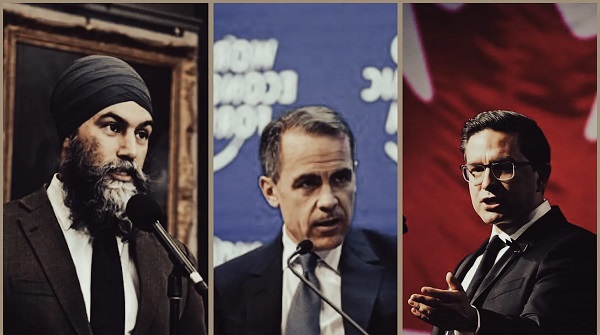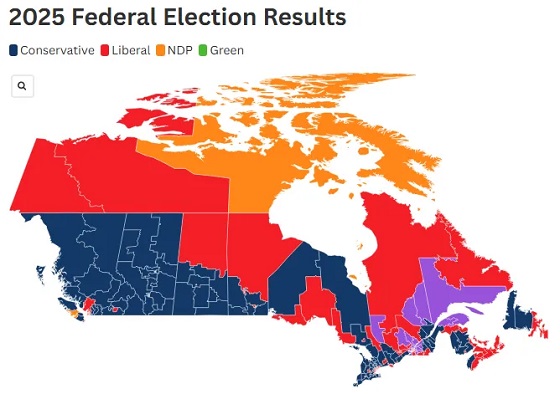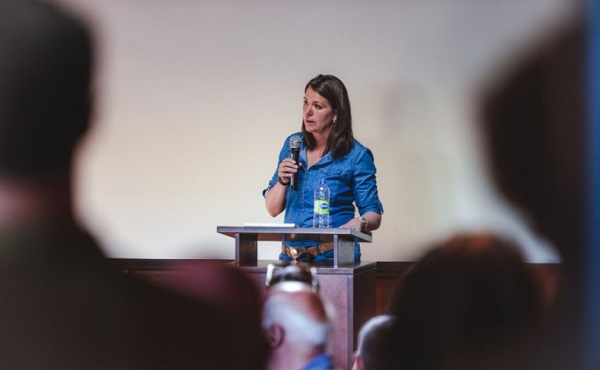2025 Federal Election
Researchers Link China’s Intelligence and Elite Influence Arms to B.C. Government, Liberal Party, and Trudeau-Appointed Senator

 Sam Cooper
Sam Cooper
“The PRC uses its UFWD in Canada and around the world to stifle criticism and manipulate Canadian communities. These activities constitute a threat to Canada’s sovereignty and to the safety of Canadians.”
A powerful new investigative map released by diaspora researchers traces political ties reaching from Chinese Communist Party-controlled intelligence networks to the highest levels of British Columbia’s government. The visual exposé centers on Senator Yuen Pau Woo and his pivotal role in welcoming Chinese state-linked entities into Canadian institutions—an effort that resonates in a secretly recorded 2020 meeting obtained by The Bureau, in which Woo assured United Front figures he would help shield them from critical scrutiny.
These same United Front entities have been credited by Beijing for their role in promoting Chinese Canadian candidates during federal election campaigns.

Woo was appointed to the Senate by Prime Minister Justin Trudeau in 2016, with an official announcement citing his work with the same entities now identified by diaspora researchers as Chinese-influenced trade lobbies.
The map, titled “From Ottawa to Victoria,” is part of the ongoing Dotting the Map series from Canadian Friends of Hong Kong and Found in Translation, two diaspora-led civil society groups. Built from open-source records, the map draws direct lines between United Front-aligned business, political, and media organizations and prominent Canadian leaders, including Senator Woo, former BC Liberal Premier Christy Clark, ex-minister Teresa Wat, Premier David Eby’s advisor Ding Guo, and Rise Media journalists.
The researchers caution that no individual named in their report is alleged to be knowingly involved in Chinese influence activities. Rather, the mapping effort is designed to educate voters by highlighting verified affiliations to Chinese state or military-linked organizations.
Rise Media—as reported by The Bureau—played a key role in supporting Mark Carney’s current Liberal candidate Parm Bains in the 2021 contest, in which Bains upset Conservative incumbent Kenny Chiu. That Richmond riding is one of the top three examples of Chinese election interference overturning Conservative candidates, according to former Conservative leader Erin O’Toole.
At the center of the new Dotting the Map diagram is Senator Woo, shown helping open pathways for China Poly Group, a state conglomerate tied to the People’s Liberation Army, and Poly Culture, its cultural diplomacy arm. The map shows that under the Liberal Christy Clark government—with Woo’s active involvement—British Columbia approved multi-million-dollar partnerships with numerous shadowy Chinese entities via HQ Vancouver, a Canadian “public-private” entity created to draw foreign investment into Canada.
Woo’s name is also linked through board roles and event partnerships to the Asia Pacific Foundation of Canada and various CCP-aligned think tanks, including those tied through joint programming to the International Liaison Department, a CCP foreign intelligence arm.
According to the map, Woo co-organized a 2010 event in Canada with Henry Huiyao Wang, founder of the Centre for China & Globalization—a think tank under the ILD that directly advises the Chinese State Council. Wang and Woo co-wrote articles and maintained overt links through the Asia Pacific Foundation during Woo’s tenure as president and CEO.
According to political scientist Anne-Marie Brady, the ILD is “tasked with gathering intelligence on foreign politicians and political parties, and developing asset relations with them.”
In Justin Trudeau’s October 2016 appointment notice, Woo is credited for works including:
“As President and CEO of the Asia Pacific Foundation of Canada from 2005 to 2014, he led a major expansion of the organization and spearheaded the ‘National Conversation on Asia’, a three-year cross-Canada campaign to highlight the growing importance of Asia in the world and for Canada. Currently, he serves as President of HQ Vancouver, a public-private partnership established to promote British Columbia as a head office location for global firms.”
According to the map, Teresa Wat, while serving as a minister in Christy Clark’s Liberal government, extended Belt and Road cooperation to British Columbia, joined Huawei and a local telecom firm in 5G research initiatives, participated in multiple PRC-affiliated delegations, and came from a background in Chinese state-linked media. She is also listed as having facilitated the involvement of Chinese real estate tycoons in provincial-level discussions on infrastructure and housing.
The map identifies Ding Guo, founder of the Canada Committee 100 Society (CCS100), as a critical node. Guo is shown as a journalist from Shanghai who transitioned into a leadership role in B.C. Chinese-language media and political mobilization.
As previously reported by The Bureau, in December 2021, then-Attorney General David Eby approved a $20,000 provincial grant to CCS100, citing its anti-racism and Chinese diaspora engagement goals. The grant was awarded while Guo served as a Chinese community advisor to Eby. A February 2021 report from a Chinese Communist Party organ cited CCS100 among several Canadian groups praised for “voter education, mobilization, and fundraising” efforts during the 2019 election cycle.
Premier Eby also awarded Ding Guo the King Charles III Coronation Medal, the researchers found.
Kenny Zhang, also named in the map, is shown occupying a dual role as a former executive director of HQ Vancouver and head researcher with Ding Guo’s CCS100. He was affiliated with Rise Media, which promoted Liberal candidate Parm Bains over MP Kenny Chiu during the 2021 federal election campaign—and Zhang was also awarded a King Charles III Coronation Medal by Senator Yuen Pau Woo.
The Bureau’s publication of the “Woo Tape” forms part of the evidentiary spine of the researchers’ latest map. All three—Ding Guo, Kenny Zhang, and Senator Yuen Pau Woo—were present in this groundbreaking piece of evidence.
In the May 2020 recording, Senator Woo tells CCS100 leaders, including Ding Guo, that he will help protect their organizations from scrutiny in Canadian public discourse, including inside Parliament.
The remote-online meeting, captured on audio and visual files held by The Bureau, included figures tied to United Front-linked institutions and media outlets aligned with PRC narratives. In the meeting, Woo states: “Whether you belong to an organization, that happens to be listed as a United Front organization, should not be a litmus test.”
He continues: “I am fighting very hard,” against this type of criticism.
The statements closely mirror the PRC’s own foreign messaging, which frequently defends its overseas political networks as benign civic or cultural organizations.
When The Bureau sent detailed questions to Senator Woo regarding the recording, Woo advised that questions should be directed to the Hogue Commission.
The Bureau also provided the tape-recorded evidence to CSIS and asked the Service to comment on whether the statements are relevant to Woo’s intervener status in the Hogue Commission.
“Individuals purposefully aligning themselves with United Front Work Department (UFWD) designated organizations should understand its ongoing actions targeting members of Canadian communities with harassment, manipulation or intimidation,” spokesman Eric Balsam wrote, in a statement that didn’t name Senator Woo. “The PRC uses its UFWD in Canada and around the world to stifle criticism and manipulate Canadian communities. These activities constitute a threat to Canada’s sovereignty and to the safety of Canadians.”
The researchers’ findings—meant to educate voters during a Canadian election in which Prime Minister Mark Carney has already been boosted by disinformation from elite Chinese Communist Party intelligence entities—take on added significance in light of sections of the map that link Senator Woo, the Asia Pacific Foundation of Canada, and affiliated organizations to the International Liaison Department (ILD).
The ILD is a powerful arm of the Chinese Communist Party that experts identify as a covert influence and foreign intelligence agency operating globally on behalf of Beijing’s political interests.
In his 2022 book, Spies and Lies: How China’s Greatest Covert Operations Fooled the World, author and analyst Alex Joske details how the ILD has historically conducted clandestine activities aimed at shaping foreign perceptions and policymaking in favor of the CCP. His research shows that the department plays a central role in executing covert influence operations targeting political, business, and academic elites abroad.
Meanwhile, as previously reported by The Bureau, a report that praised Premier David Eby’s advisor Ding Guo for helping mobilize Chinese Canadian voters in 2019 also highlighted the importance of the Liberal Party leader’s outreach to the Chinese community in that contest. It noted that “Trudeau Jr. personally went to seek votes at a Chinese supermarket in Markham, an area of Toronto where Chinese people live, demonstrating that Chinese votes play an important role in the general election.”
The report, published by ACFROC (a United Front-linked organization), also emphasized the key role of WeChat in rallying voters. It said 41 federal election candidates seen as “of special interest” to Beijing were nominated by different parties in the 2019 race—an increase from “only 27 and 23 in 2015 and 2011.”
Charles Burton, a respected China expert and Mandarin-language analyst, reviewed the report for The Bureau. He said the document “identifies 41 ‘distinguished’ Chinese candidates nominated in 2019, so I judge that the use of ‘distinguished’ implies identification of candidates potentially useful to the United Front’s aims.”
The Bureau is a reader-supported publication.
To receive new posts and support my work, consider becoming a free or paid subscriber.
For the full experience, please upgrade your subscription and support a public interest startup.
We break international stories and this requires elite expertise, time and legal costs.
Invite your friends and earn rewards
2025 Federal Election
NDP Floor Crossers May Give Carney A Majority

Walk this way! …singing, hey diddle diddle with the NDP in the middle…
Rumours are bouncing around that a number of NDP MPs are looking at potentially crossing the floor to join the Liberal Party of Canada and give Mark Carney the majority he is looking for. The final count for the Liberal Party was that they finished with 169 seats, a mere three seats short of the number needed to claim majority and not have to work with other parties to create a workable mandate.
From the NDP perspective, I sort of get it. After all, Singh lost in his own riding, the party no longer enjoys Official Party Status and all the accoutrements that come along with this (the biggest one being money), and the party is rumoured to be bankrupt. From an individual’s perspective, crossing the floor gives them four years of employment (beyond that may be more murky as many will say “I didn’t vote for that”), and if you are amongst the first to cross, your bargaining position (cabinet position) can enhance your political lot in life fairly materially. If this were to occur it will happen quickly as the law of diminishing returns happens exponentially faster should you be the fourth to cross the line (maybe the Lizzy will join the race!)
From the Liberal perspective, I’m not as convinced the benefits are as transparent, from a nation building perspective. Sure, you get the majority (and thus mandate) you wish to pursue, but you truly would be thumbing your nose at Canada when you know that many NDP votes metaphorically crossed the floor to vote during the election (likely without the foresight that it would result in the death of their party), and that the country is actually pretty evenly split between the Liberals and Conservatives. Language like “now is the time for Canada to unite” and “we need a strong mandate to make Canada strong, and now we have it” could be thrown around, but that can create real fractures should that occur.
Personally, I am hoping that Prime Minister Carney says no to any floor crossers, and works to bridge the divides that are significant within this country. There is no reason that Canada cannot be one of the greatest countries, other than getting in the way of ourselves. Now is the time for olive branches, not cactus areoles.
Thanks for reading William’s Substack!
Subscribe for free to receive new posts and support my work.
2025 Federal Election
Post election…the chips fell where they fell

From William’s Substack
 William Lacey
William Lacey
I put a lot of personal energy into this election, trying to understand why it was that Canadians so wholeheartedly endorsed Mark Carney as their new leader, despite the fact that it was the same party who caused irreparable economic harm to the economy, and he has a similar philosophical outlook to the core outlook of the party. I truly believe that we have moved to a phase in our electoral process where, until something breaks, left leaning ideology will trump the day (pun intended).
Coming out of this election I have three questions.
1. What of Pierre Poilievre? The question for Conservatives is whether the wolves feed on the carcass of Poilievre (in my opinion the worst enemy of a Conservative is a Conservative) and initiate the hunt for a new leader (if they do, I believe the future should be led by a woman – Melissa Lantsman or possibly Caroline Mulroney), or does Poilievre move to Alberta and run for a “safe” seat to get back into the House of Commons, change his tone, and show people he too can be Prime Ministerial? His concession speech gives clues to this.
2. What of Mark Carney? Maybe (hopefully) Carney will see the light and try to bring the nation together, as there is an obvious east-west split in the country in terms of politics. Time will tell, and minority governments need to be cautious. Will we have a Supply and Confidence 2.0 or will we see olive branches extended?
3. What of the House of Commons? As I have mentioned previously, there has been discussion that the House of Commons may not sit until after the summer break, meaning that the House of Commons really will not have conducted any business in almost a year by the time it reconveens. If indeed “we are in the worst crisis of our lives” as Prime Minister Carney campaigned on, then should we not have the House of Commons sit through the summer? After all, the summer break usually is for politicians to go back to their ridings and connect with their constituents, but if an election campaign doesn’t constitute connecting, what does?
Regardless, as the election is behind us, we now need to see what comes. I will try to be hopeful, but remain cautious. May Canada have better days ahead.
Thanks for reading William’s Substack!
Subscribe for free to receive new posts and support my work.
-

 Alberta21 hours ago
Alberta21 hours agoNew Alberta Election Act bans electronic vote counting machines, lowers threshold for recalls and petitions
-

 Alberta21 hours ago
Alberta21 hours agoHours after Liberal election win, Alberta Prosperity Project drumming up interest in referendum
-

 Alberta1 day ago
Alberta1 day agoPremier Danielle Smith responds to election of Liberal government
-

 Automotive2 days ago
Automotive2 days agoMajor automakers push congress to block California’s 2035 EV mandate
-

 Banks22 hours ago
Banks22 hours agoTD Bank Account Closures Expose Chinese Hybrid Warfare Threat
-

 2025 Federal Election22 hours ago
2025 Federal Election22 hours agoPost election…the chips fell where they fell
-

 Mental Health2 days ago
Mental Health2 days agoSuspect who killed 11 in Vancouver festival attack ID’d
-

 Alberta13 hours ago
Alberta13 hours agoPremier Danielle Smith hints Alberta may begin ‘path’ toward greater autonomy after Mark Carney’s win







